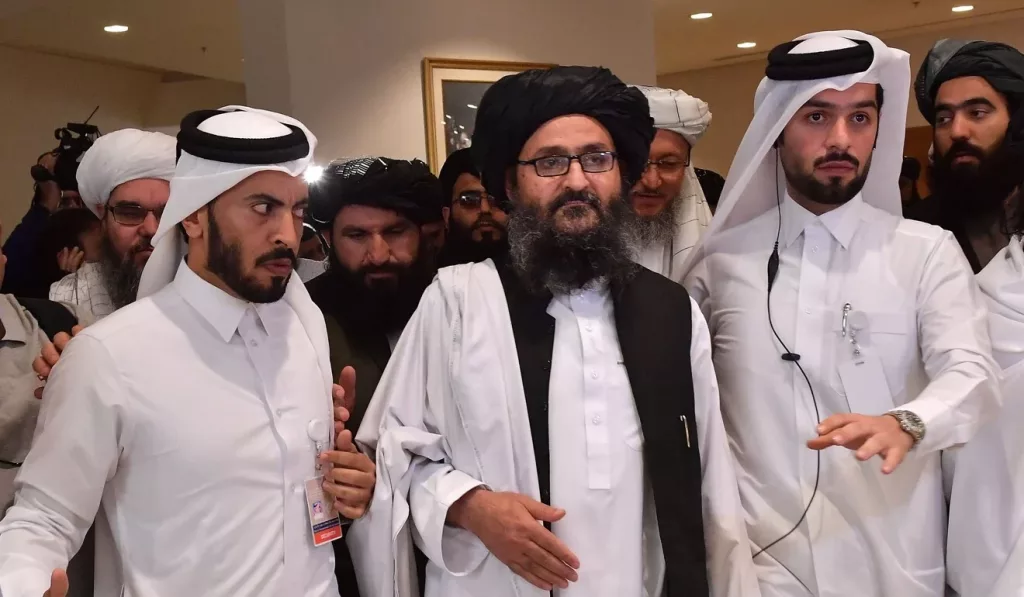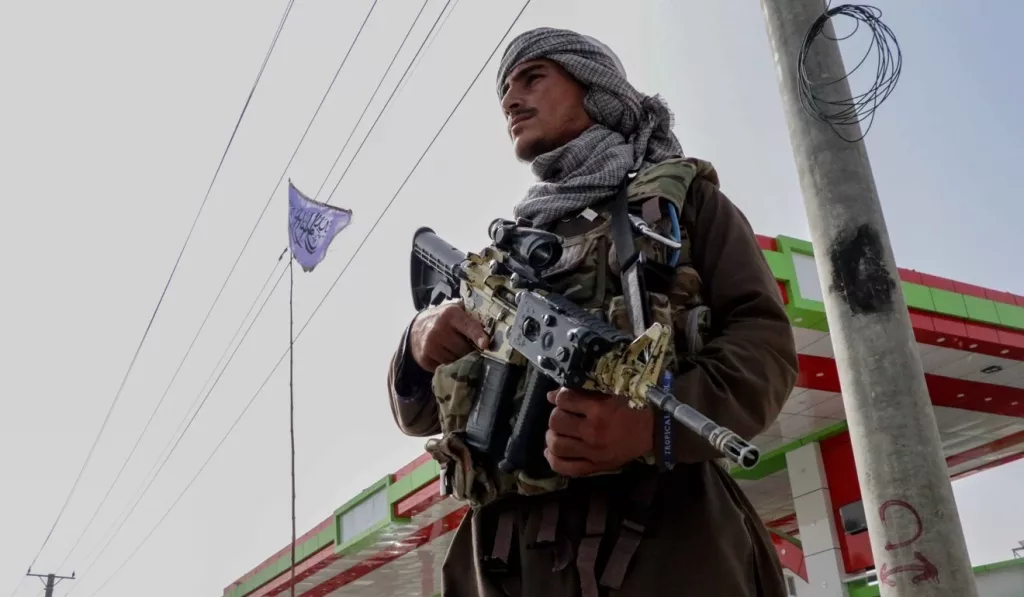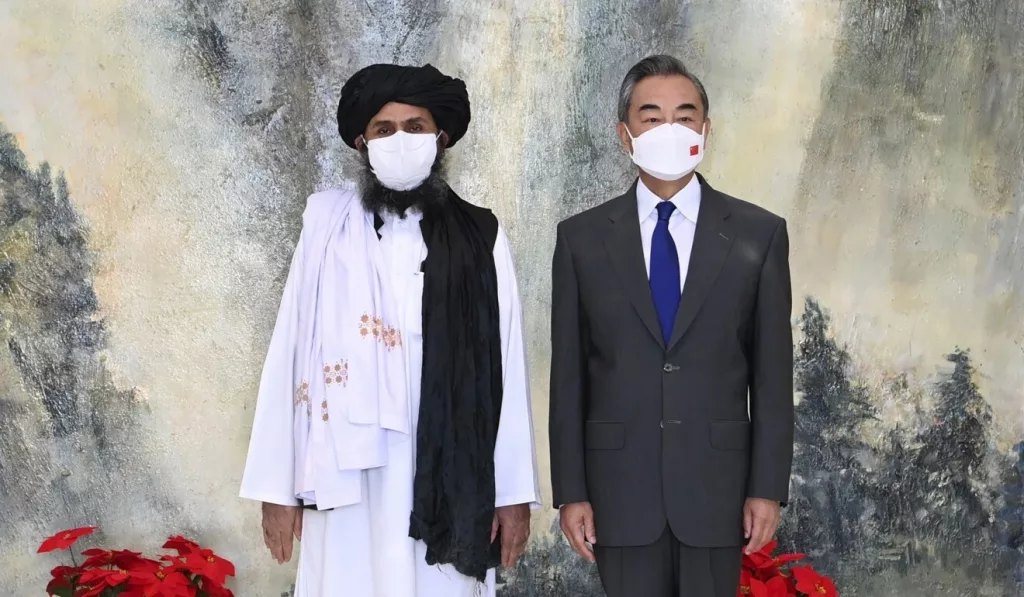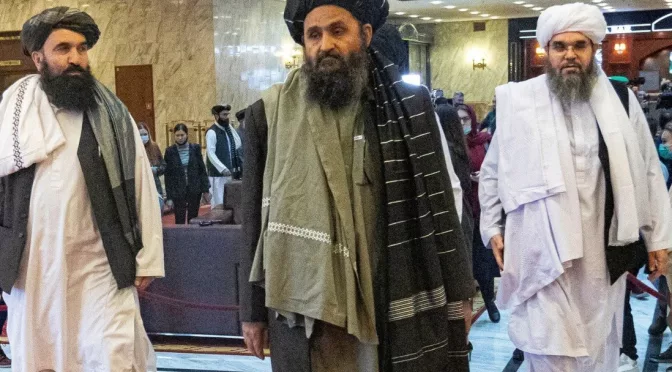On Tuesday, Baradar landed in the southern Afghan city of Kandahar, the birthplace of the Taliban movement he helped found in the mid-1990s. Ending 20 years of exile, he was thronged by well-wishers as he stepped off a Qatari government aircraft and drove off in a convoy.
Baradar, who is in his early 50s, was born in the southern Uruzgan province. Like others who would eventually become Taliban leaders, he joined the ranks of the CIA- and Pakistan-backed mujahideen to fight against the Soviet Union during its decade-long occupation of the country that ended in 1989.
In the 1990s, the country slid into civil war, with rival mujahideen battling one another and carving out fiefdoms. Warlords set up brutal protection rackets and checkpoints in which their forces shook down travellers to fund their military activities.

In 1994, Mullah Omar, Baradar and others founded the Taliban, which means religious students. The group mainly consisted of clerics and young, pious men, many of whom had been driven from their homes and had known only war. Their unsparing interpretation of Islam unified their ranks and set them apart from the notoriously corrupt warlords.
SCMP Global Impact Newsletter
By submitting, you consent to receiving marketing emails from SCMP. If you don’t want these, tick here
Baradar fought alongside Mullah Omar as he led the Taliban through its seizure of power in 1996 and its return to an insurgency following the 2001 US-led invasion.
During the group’s 1996-2001 rule, the president and governing council were based in Kabul. But Baradar spent most of his time in Kandahar, the spiritual capital of the Taliban, and did not have an official government role.
The US invaded Afghanistan after the September 11 attacks, which had been planned and carried out by Osama bin Laden’s al-Qaeda while it was sheltering under Taliban rule. Baradar, Omar and other Taliban leaders fled into neighbouring Pakistan.

In the ensuing years, the Taliban were able to organise a potent insurgency based in rugged and semi-autonomous tribal areas along the border. Baradar was arrested in Pakistan’s southern city of Karachi in 2010 in a joint raid by the CIA and Pakistan’s counterterrorism forces.
At the time, he had been making peace overtures to Afghanistan’s then-President Hamid Karzai, but the US was bent on military victory and it appeared that Pakistan wanted to ensure control over any political process. Baradar’s removal empowered more radical leaders within the Taliban who were less open to diplomacy.
Karzai later confirmed the overtures to Associated Press and said he had twice asked the Americans and the Pakistanis to free Baradar but was rebuffed. Baradar himself refused an offer of release in 2013, apparently because the US and Pakistan conditioned it on his cooperation.
Karzai, who is now involved in talks with the Taliban about shaping the next government, could once again find himself negotiating with Baradar.
By 2018, the Taliban had seized effective control over much of Afghanistan’s countryside. The Trump administration, looking for a way out of America’s longest war, persuaded Pakistan to release Baradar that year and began pursuing peace talks with the Taliban.

Baradar led the Taliban’s negotiating team in Qatar through several rounds of those talks, culminating in a February 2020 peace agreement. He also met with then-US Secretary of State Mike Pompeo.
China, which has sought good relations with the Taliban, hosted Baradar, for talks with Foreign Minister Wang Yi late last month.
Last week, the Taliban pushed into the country’s cities, seizing nearly all of the country in matter of days and then rolled virtually unopposed into the capital, Kabul.
In his first comment after the capture of Kabul on Sunday, Baradar acknowledged his surprise, saying that “it was never expected that we will have victory in Afghanistan”.
Wearing a black turban and vest over a white robe, the bespectacled Baradar looked straight into the camera.
“Now comes the test,” he said. “We must meet the challenge of serving and securing our nation, and giving it a stable life going forward.”



Believe me when I say that Joe Biden will betray Taiwan, Japan, South Korea. Australia, Israel and will cause the collapse of America. Creepy Joe, Clueless Kamala and Crazy Nancy need to be removed from office, but the Pentagon is too busy trying to be Politically Correct.
We need a new government because this one is totally dysfunctional, and the military has completely failed to fulfill its sacred oath to defend America against all enemies, both foreign and DOMESTIC.
BOBBY KENNEDY ONCE SAID THAT WHEN IT COMES TO GOVERNMENT, NOTHING HAPPENS BY CHANCE. IT IS ALWAYS PLANNED IN ADVANCE.
WORLD WAR THREE IS COMING. PREPARE NOW!
Would you trust these Taliban people? Biden does.